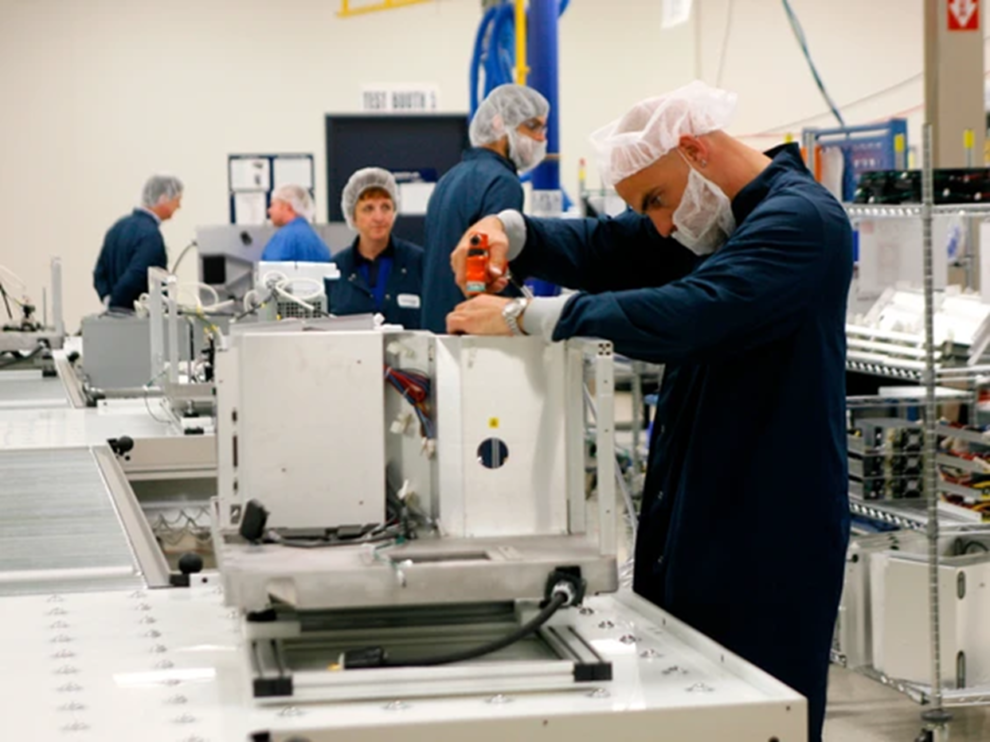It’s time we started training people once again for the real economy — the economy where people get their hands dirty making and building things.
Canada used to be a strong manufacturing nation. Some of our biggest and best known companies were manufacturing powerhouses like Massey-Harris and Northern Telecom. We made everything from tractors and trains to automobiles and airplanes. We also had our own homegrown manufacturers like Inglis and Electrohome that built made-in-Canada washing machines and TVs.
One of the first jobs I had when I immigrated to Canada as a young toolmaker was working in a factory that produced parts for the ill-fated Avro Arrow, which at the time was the world’s fastest fighter jet. But Canada hardly ever makes world-leading, technologically advanced products anymore. One of the reasons for this is that we no longer have the pool of skilled technical trade workers needed to manufacture complex products.
Last month, I proposed the creation of a new national movement of concerned Canadians who would rally around seven core principles to boost our economy and improve our country’s living standards. One of those core principles was to introduce more skilled trades education in our high schools. It would be a sure-fire formula to revitalize the economy, create good-paying jobs and boost living standards.
But we need to start right now. Time is running out. For one thing, many of our country’s skilled tradespeople are close to retirement age. How are we going to replace them? And who will be left to pass on valuable skills and knowledge to the younger generation?
One solution is to fast-track technically skilled immigrants. Ontario, for example, announced a new program in March to double the number of economic immigrants that it selects to help fill the province’s labour shortage in industries requiring skilled trades by 2025.
That’s basically how I came to my adopted homeland of Canada. After the Second World War, Canada’s economy began to boom and there was a severe shortage of skilled workers — a shortage that was solved by bringing in tradespeople from Europe.
At the tool and die business I started in 1954, which later became Magna International, most of the tradespeople I hired were immigrants like me. But as Magna grew and expanded, the wave of immigration that brought skilled tradespeople from Europe began to dry up.
That was when I started opening our own corporate technical training centres. I wasn’t too worried about Magna’s future, but about the hundreds of other companies across Canada that would soon need tradespeople. So around the mid-1980s, I began banging the drum about the need for more technical trades education in Canada — a call to action I’ve been making ever since.
We should create a technical trade learning program to expose high school students to at least four different trades over a two-year period. The trade learning would take place outside the classroom at auto repair shops, construction sites, hair salons and restaurants.
Students would still have the option to go to university, but this sort of hands-on training would allow them to get a real feel for various career options they may never have considered — careers that require them to use both their brains and their hands.
Canada’s economic base used to be solidly grounded in the real economy — the economy of manufactured products, agriculture and mining. But over the past several decades, we’ve gone away from a real economy to an economy built on providing services such as financial transactions. We hardly ever see products made in this country on store shelves anymore.
About 20 minutes north of my corporate headquarters in the suburbs of Toronto, massive warehouse facilities are springing up everywhere. But nothing will ever get made inside these giant warehouses, they will simply store products that were mostly manufactured elsewhere.
For some time now, we’ve educated and trained people to basically shuffle papers all day long in activities designed to manage or transfer wealth rather than create wealth. It’s time we started training people once again for the real economy — the economy where people get their hands dirty making and building things.
Source: nationalpost
















